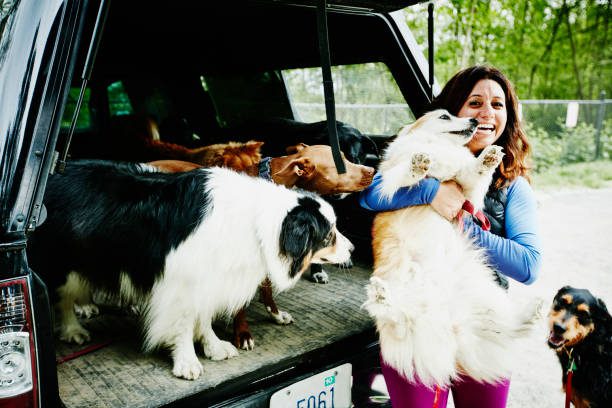The rise of pet adoption has brought joy to countless animals and families. Animal rescue transport companies are important for reuniting animals with their forever homes; however, the relocation process can be a source of stress for these animals, impacting their physical and emotional well-being.
Common Stressors Faced by Rescue Animals in Transport
Animals face a range of stressors while moving from unstable environments to shelters or forever homes. Understanding these factors is essential for improving their well-being during transit. Let’s take a look at the challenges these animals face:
A Fragile Bond
Many rescued animals are often nervous due to neglect or abandonment, and unknown human interaction during transport can be stressful due to their previous experiences. This lack of trust can heighten their fear during transport.
Loss of Control and Routine
Generally, animals thrive on predictable feeding, walking, and resting schedules—even during situations of neglect. However, during transport, these routines are disrupted. The unfamiliar environment can induce stress in them as they’re unable to understand the changes around them, which can result in altered eating and sleeping patterns or even behavioral issues.
Unaccustomed Surroundings
The transport environment presents unpredictable stimuli for animals. Various sights, sounds, and smells bombard their senses, disrupting their sense of safety. The constant motion of the vehicle, coupled with unfamiliar noises from the engine, traffic, and other animals, can trigger fear responses. This sensory overload can be highly stressful for animals, leading to increased uneasiness during transport.
Physical Discomfort
Animal transport can introduce physical stressors. Cramped spaces may restrict movement and natural postures, leading to fatigue and muscle stiffness. Temperature fluctuations within the vehicle can cause overheating or chilling, depending on the season and climate control. Some animals, especially those unaccustomed to travel, are susceptible to motion sickness, further adding to their discomfort.
Separation Anxiety
If the rescue was with a foster parent, the sudden absence of these trusted individuals can be highly distressing. This is true for animals, who may be more prone to feelings of insecurity and loneliness. While transport personnel are important for their wellness, their unfamiliar presence can heighten anxiety, highlighting the loss of established social connections.
How to Minimize Stress During Pet Transport
Prioritizing a pet’s mental and physical state during a transition creates a positive experience. Here are a few tips that you could follow:
Prioritizing Animal Welfare
Companies dedicated to animal welfare take a comprehensive approach to ensure the well-being of animals. This includes using specialized vehicles with appropriate ventilation, temperature regulation, and comfortable bedding. Experienced and empathetic staff trained in animal behavior can reduce stress by using gentle handling and familiarization techniques. This ensures a safe and comfortable journey for every animal under their care.
Reducing Travel Time
When animals are moved, especially in confined spaces like carriers, they can become fearful. Reducing travel duration can lessen the stress and help them stay calmer. This can involve employing transport coordinators who meticulously plan routes, considering traffic patterns, weather conditions, and timed rest stops.
Enrichment and Interaction
While safety remains primary, incorporating enrichment strategies can significantly reduce stress for rescue animals during transport. Familiar items, like toys or blankets, can provide a comforting sense of security. For animals comfortable with crate interaction, gentle petting or soothing murmurs through the crate can offer positive reinforcement and reduce panic.
Recognizing the potential challenges of pet transport is essential for ensuring that our beloved companions are safe during their ride. At Save Them All Pet Transport, we know a smooth journey is the first step of a happy new chapter for our tail-wagging friends. Contact us today to make your pet’s relocation hassle-free!

